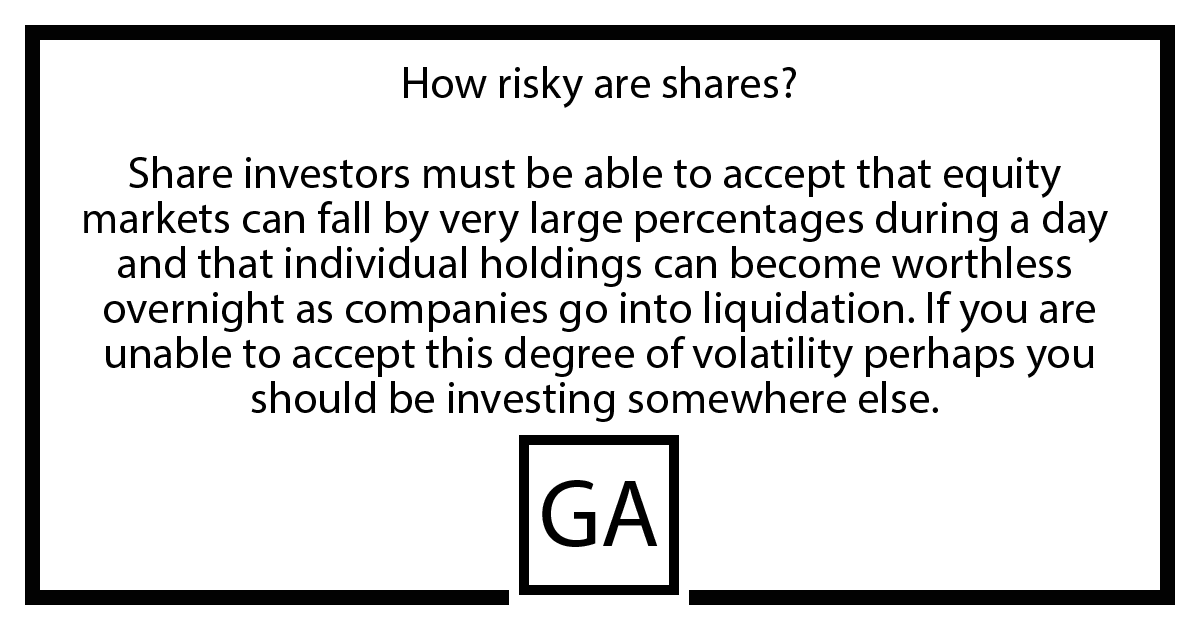|
So shares have generally been a good form of investment, but there is a downside. We have already seen that shares can produce negative real returns for periods as long as a decade. Between 2000 and 2003 UK shares halved in price, as did Japanese shares. German shares fell by two-thirds. They rallied until, in late 2007, they fell again in dramatic fashion. In the 2008 collapse the world index of shares fell by 55 per cent.
It does not take long when looking at statistics like these to form the impression that shares are risky. Share investors must be able to accept that equity markets can fall by very large percentages during a day and that individual holdings can become worthless overnight as companies go into liquidation. If you are unable to accept this degree of volatility perhaps you should be investing somewhere else. Building society and bank accounts beckon. While it is important to acknowledge the possibility of negative share return performance, even over periods as long as 10 years, we must not become too pessimistic. Shares on average gave investors very good returns during the last century. I am convinced that they will do so again, just as long as investors avoid buying when the market is being ‘irrationally exuberant’ and blowing up a bubble. Shares should be viewed as long-term investments and not short-term gambling counters. Good returns are available for equity investors who are prepared to bide their time. Note that even if you had bought shares at the peak of the market at the beginning of 1973 and you had experienced a fall in market value to a mere 27 per cent of initial investment over the first two years, if you had held these shares for a further 38 years your average annual real return would have been 6.2 per cent. Your initial investment of £100,000 would be worth £1.1m in 1973 money or over £9 million in year 2012 money. Clearly patience and resilience in the face of market volatility can pay off. There are good reasons for the superior returns in equity investment. Shares represent the risk capital of businesses. This money is put at high risk. Companies go into liquidation and markets turn down violently. Bond investors settle for a trade-off between lower risk and lower returns (although even they can get overpriced, thereby becoming poor investments).
0 Comments
Leave a Reply. |
Glen ArnoldI'm a full-time investor running my portfolio. I invest other people's money into the same shares I hold under the Managed Portfolio Service at Henry Spain. Each of my client's individual accounts is invested in roughly the same proportions as my "Model Portfolio" for which we charge 1.2% + VAT per year. If you would like to join us contact [email protected] investing is about making the right decisions, not many decisions.
Categories
All
Archives
May 2023
|


 RSS Feed
RSS Feed